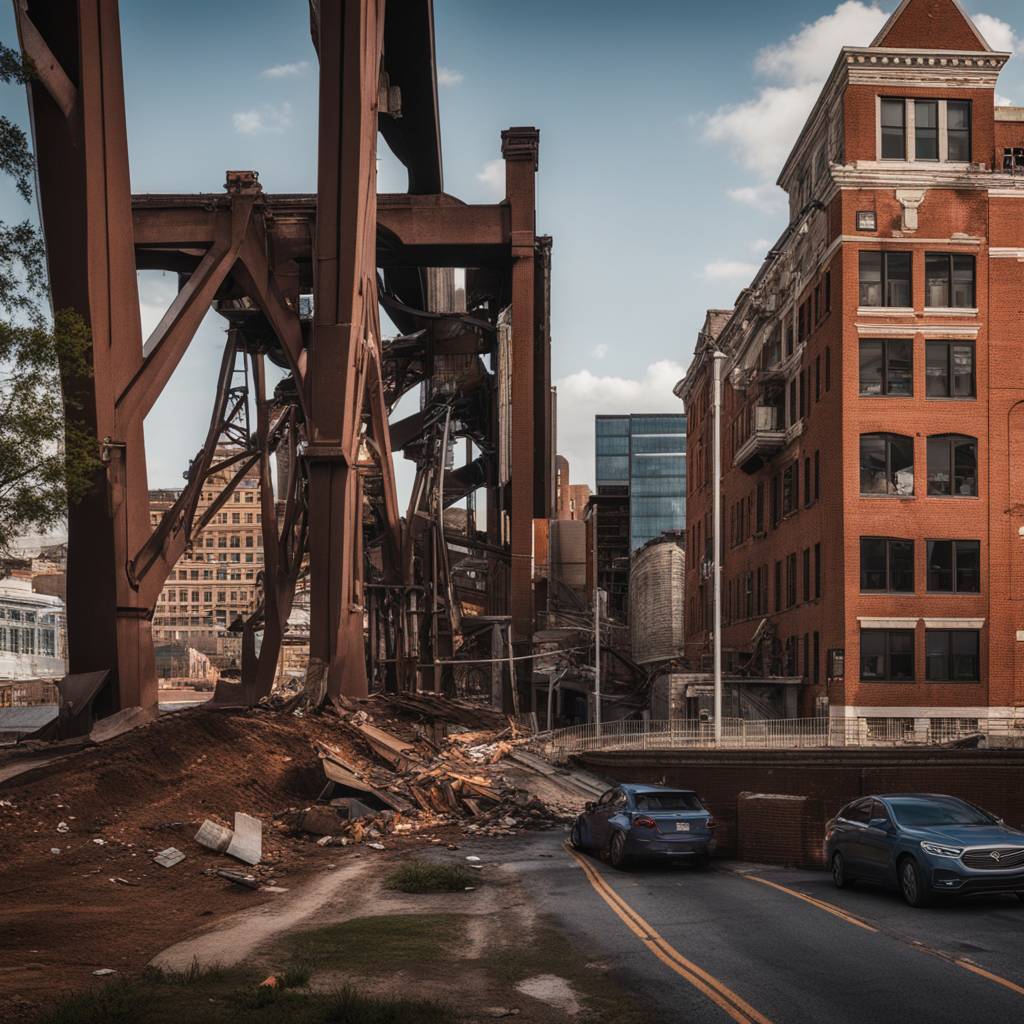The collapse of the Francis Scott Key Bridge in Baltimore, resulting in the deaths of Hispanic construction workers, has had a significant impact on the local community. As efforts are made to return to normalcy, experts believe that the local economy will likely withstand the effects of the collapse. The Port of Baltimore, a key economic engine in the region, has been immobilized by debris, but officials are working to remove the wreckage and rebuild the bridge with the help of federal funding and insurance coverage.
Despite the challenges posed by the bridge collapse, Baltimore County and the city have high credit ratings and strong tax bases that ensure their resilience to one-time shocks. Moody’s Ratings has stated that a successful resumption of port activity and substantial federal funding for bridge replacement will reduce the risk of long-term economic damage to the region. The economy of Baltimore has a diverse job market, with sectors such as health care, education, financial services, and government providing stability and employment opportunities.
The future of jobs in Baltimore, particularly those reliant on the Port of Baltimore, remains uncertain following the collapse. However, with other employers in the region and the potential reopening of the port, workers affected by the collapse are likely to find new opportunities. The job market in the area is seen as resilient and adaptable, with private port facilities and expanding companies like Amazon providing additional employment options.
Baltimore’s economy is not severely impacted by high inflation, with consumer prices in the region rising at a slower rate than the national average. Inflation in Baltimore has remained low compared to other metro regions, creating a more affordable cost of living for residents. While energy prices have influenced overall inflation trends, Baltimore’s inflation rates have remained relatively stable over the past year.
The housing market in Baltimore is relatively stable, with median home prices comparable to the national average. Despite rising interest rates impacting nationwide housing affordability, Baltimore has seen lower mortgage rates and housing affordability ratios compared to the rest of the country. The number of building permits issued for housing units has also increased, indicating a stabilization of the local housing market.
Overall, the Baltimore metropolitan area’s economy is expected to recover from the impact of the bridge collapse due to its diverse job market, low inflation rates, and stable housing market. With efforts underway to rebuild the bridge and resume port activity, the region is likely to bounce back from the tragedy and continue to thrive economically. The resilience of Baltimore’s economy, supported by federal funding and insurance coverage, will play a key role in the region’s recovery and future growth.













